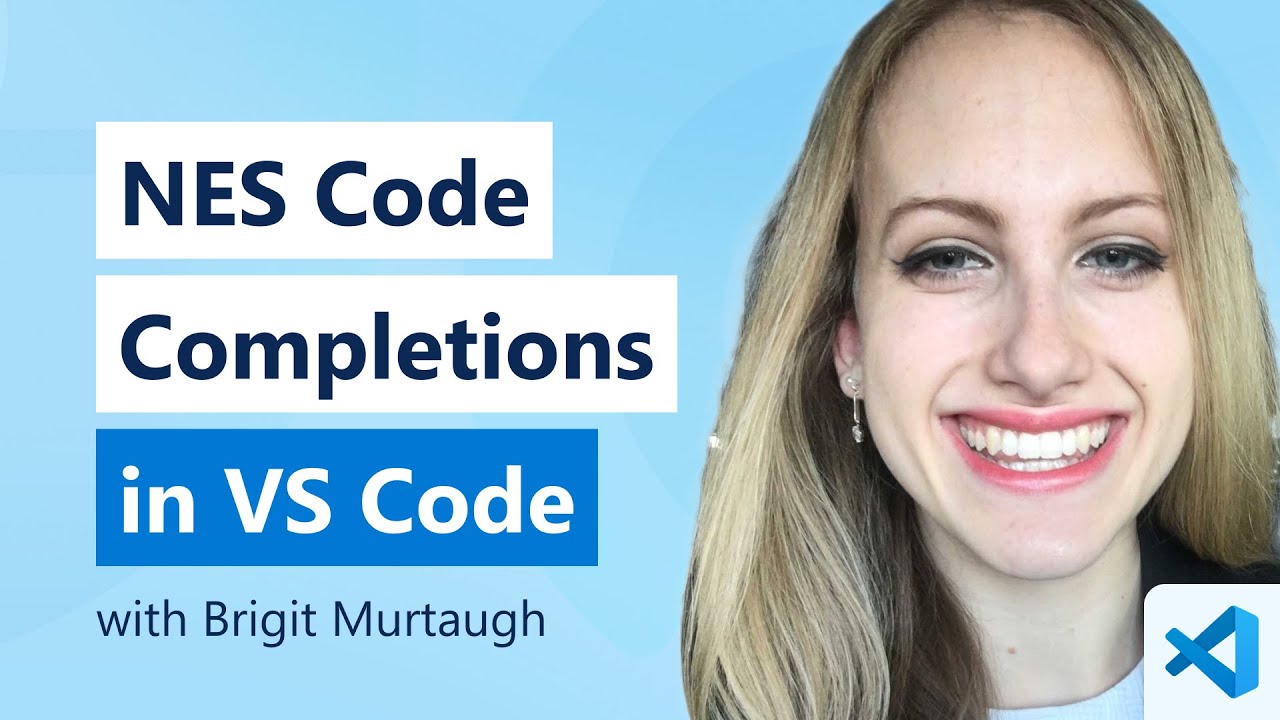The video introduces NES (Next Edit Suggestions), a new code completion feature in Visual Studio Code that assists developers by predicting and suggesting relevant code changes during editing, especially when modifying existing code or logic. It demonstrates how NES works across multiple languages, such as TypeScript and C++, to streamline refactoring and improve coding efficiency, encouraging user feedback for ongoing improvements.
The video introduces NES (Next Edit Suggestions), a new evolution in code completion technology integrated into Visual Studio Code, particularly through GitHub Copilot. Unlike traditional code completions that suggest code as you write, NES focuses on assisting developers when editing existing code and logic. The presenter demonstrates how NES can predict and suggest necessary changes when modifying code, making the editing process more efficient and intuitive.
The demonstration begins with a TypeScript example involving a Point class. When the user renames a class from “Point” to “Point3D,” NES predicts the need to add a Z coordinate for three-dimensional points. It offers suggestions to update the class by adding a Z variable, showing how NES can understand the intent behind code modifications and propose relevant changes even if they are not on the same line. Users can accept suggestions via keyboard or mouse, and the interface allows for customization to suit individual workflows.
Further, the video highlights how NES can handle changes in code logic, such as switching from calculating the minimum to the maximum in a C++ file. NES intelligently updates related variables and logic, not just renaming variables but also adjusting the code flow accordingly. The presenter explains how to distinguish NES suggestions from regular completions, noting that NES suggestions are marked with an arrow in the gutter, helping users identify the source of the suggestion.
The presenter emphasizes that NES works across multiple programming languages, including C++ and TypeScript, and is available in both VS Code Insiders and stable versions. They encourage user feedback to improve NES, asking developers to share their experiences and scenarios where NES performs well or needs improvement. This feedback is vital for the ongoing development and refinement of the feature, ensuring it adapts to various project types and user needs.
In conclusion, the video showcases NES as a powerful tool for enhancing the software development lifecycle, especially during code editing. It demonstrates how NES can predict and suggest relevant code changes, streamline refactoring, and improve coding efficiency across different languages. The presenter invites users to try out NES, customize its settings, and provide feedback to help shape its future development, making it a promising addition to the coding experience in Visual Studio Code.
